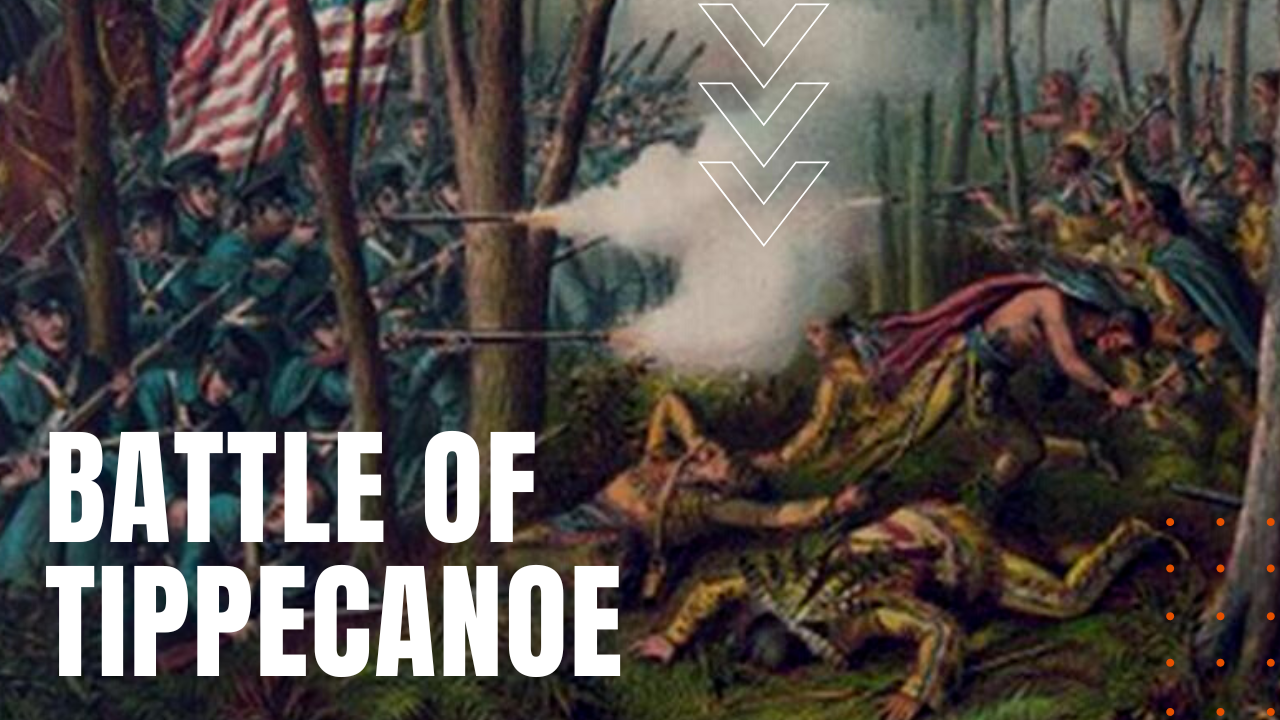Battle of Tippecanoe

Following the 1809 Treaty of Fort Wayne, which forced Indiana tribes to sell three million acres of land to the U.S. government, Shawnee Chief Tecumseh organized an alliance of Native American tribes to beat back the rising horde of pioneers from settling on native lands.
Harrison Responds in Kind
In response, Indiana Governor William Henry Harrison led some 1,000 soldiers and militiamen to destroy Tecumseh’s home village of Prophetstown, named after Tecumseh’s brother Tenskwatawa. When Harrison arrived on the evening of November 6th, 1811, he agreed to a cease-fire with Tenskwatawa until Tecumseh could return home from a recruiting campaign to the Five Civilized Tribes, forcing Harrison to set up defensive positions along the banks of Burnett Creek.
During the night, Tenskwatawa incited Shawnee warriors to take up arms against the soldiers, chanting war songs and incantations that promised protection from the enemy’s bullets, despite Tecumseh’s warning not to attack soldiers until he could return home with reinforcements. At dawn the next morning, Harrison’s troops found themselves completely surrounded, and when warriors laid down a diversionary attack on the northern end of Harrison’s rectangular defensive lines, a fierce attack on the Southern flank caused a desperate pullback when two commanding officers were killed by warriors. Harrison was able to strengthen his exposed southern flank by transferring the Indiana Mounted Rifles, forcing the warriors to pull back before a second attack. Possessing superior firepower and training, Harrison’s troops won the day, while disheartened native warriors abandoned Prophetstown in a no-confidence vote against Tenskwatawa’s fill-in leadership.
The next day, Harrison burned Prophetstown to the ground, before beginning his long march back to Vincennes. Tecumseh returned to Prophetstown three months later, and when he saw his home village in ruins, the defeat ended his dream of a Native American alliance against the white man.
The defeat at Tippecanoe would also lead Tecumseh into an alliance with Great Britain during the coming War of 1812, which played a key role in Britain’s early successes in the Great Lakes Region.
From Tippecanoe to White House
29 years later, during the largely issueless presidential election of 1840, Harrison’s victory at Tippecanoe propelled him into the White House, making the Battle of Tippecanoe, a major turning point during the protracted years of the American Indian Wars.
